Let's just try that again
Reproducibility should be at science’s heart. It isn’t. But that may soon change.

Send us a link
Reproducibility should be at science’s heart. It isn’t. But that may soon change.

The fashion for making employees collaborate has gone too far.

At first glance the patriarchy appears to be thriving. Yet there is plenty of cause for concern. Men cluster at the bottom as well as the top.

Poor countries often complain that their best minds are draining away—and for the most part they are right. The poorer the country, the larger the proportion of inventors who push off.
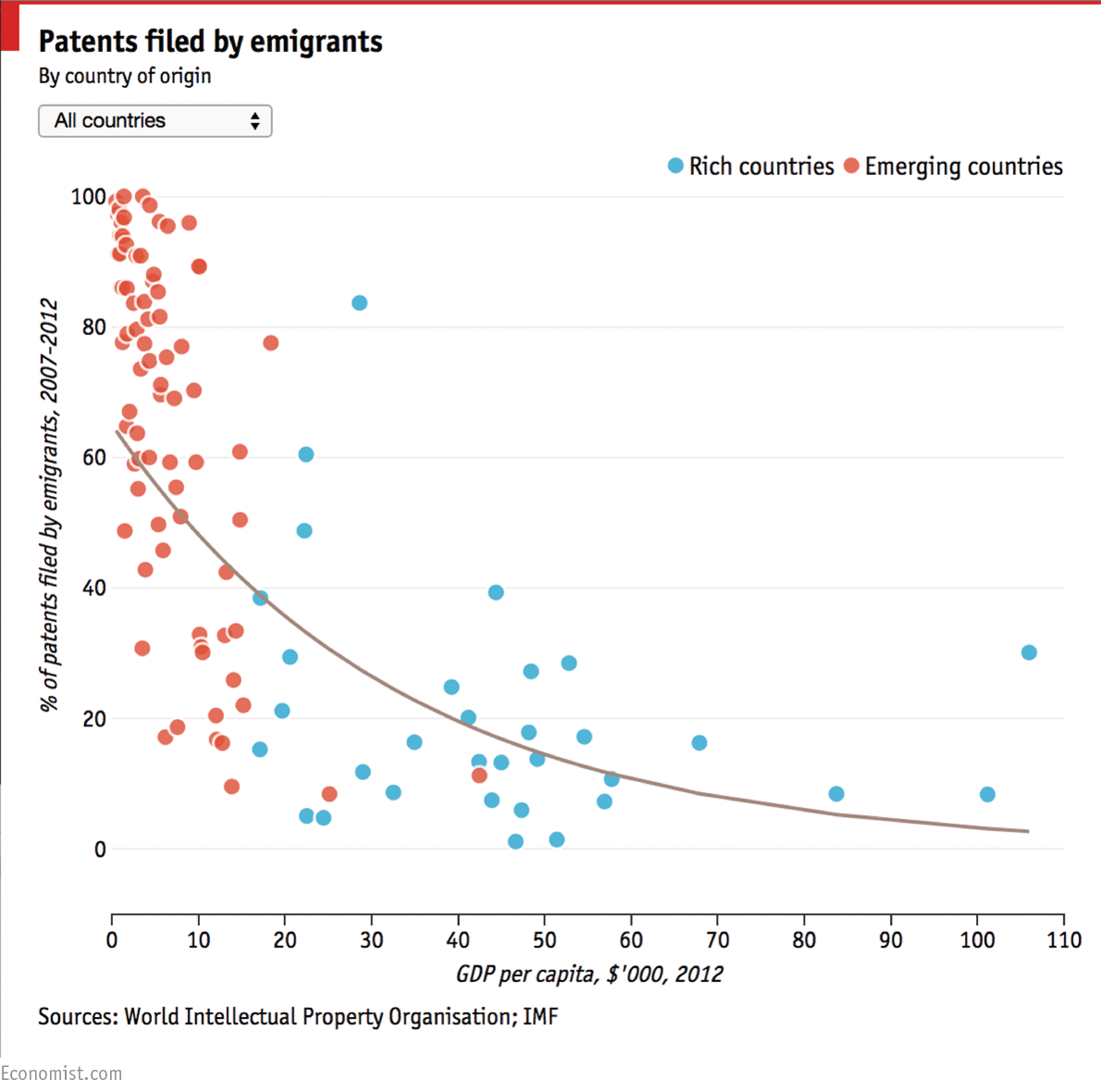
Today’s patent regime operates in the name of progress. Instead, it sets innovation back. Time to fix it.
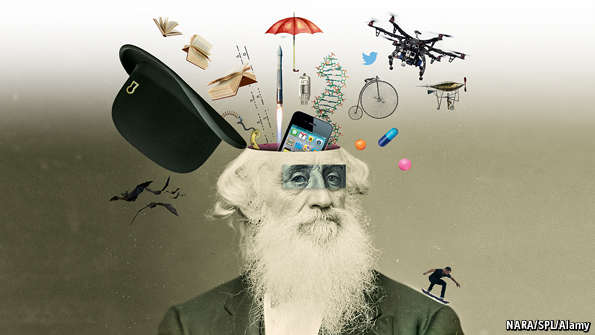
Tech firms can banish sexism without sacrificing the culture that made them successful.

Quality control in science journals is evolving, with a code of ethics in hot pursuit.
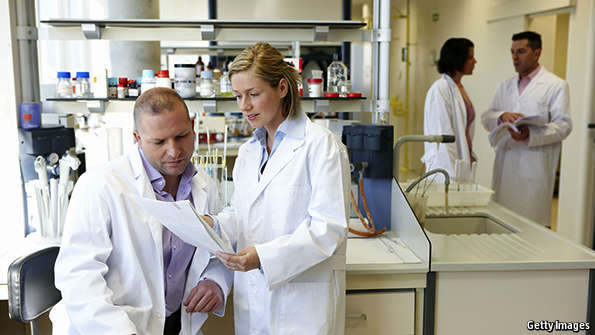
Women shy away from fields in which talent, not hard work, is thought to be key, survey suggests.

A startup enables researchers to tap labs worldwide to conduct experiments on their behalf
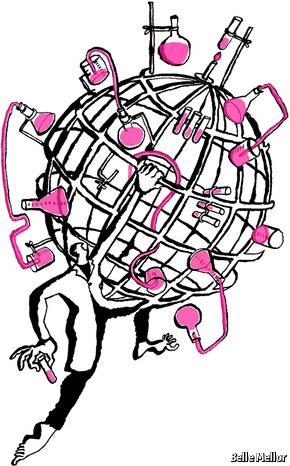
International comparisons are popular, influential - and sometimes flawed

Changes that will bring scientific discovery more freely into the public domain are happening.

George Church is a genetics pioneer whose research spans treating diseases, altering bodies and a desire to breed woolly mammoths

Africa has a poor reputation for scientific innovation. But when South Africa jointly won a bid in 2012 to host the world's largest science project, for a radio telescope called the Square Kilometre Array, it hoped to foster a new image.
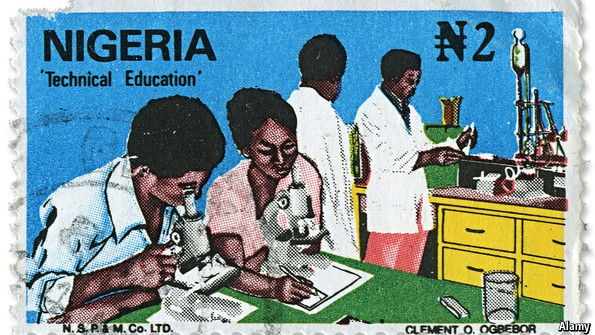
Scientists make much of the fact that their work is scrutinised anonymously by some of their peers before it is published. This "peer review" is supposed to spot mistakes and thus keep the whole process honest.
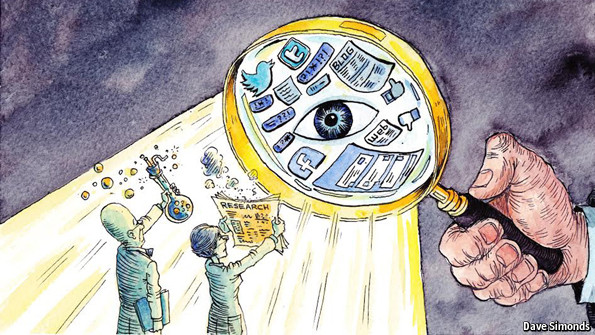
Launch of METRICS, the Meta-Research Innovation Centre at Stanford, by John Ioannidis.
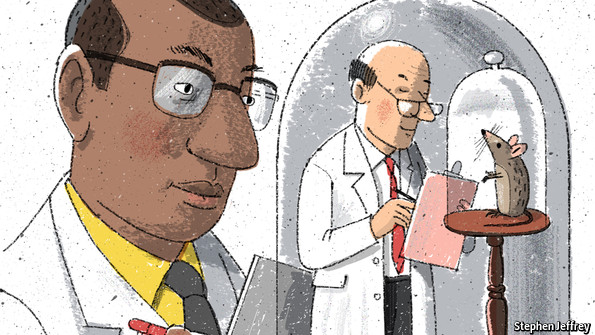
Once upon a time, it was common for scientists to receive letters from researchers working in other institutions, asking for reprints of papers they had published ...

Economics is highly parochial: there were more papers focused on the United States than on Europe, Asia, Latin America, the Middle East and Africa combined.
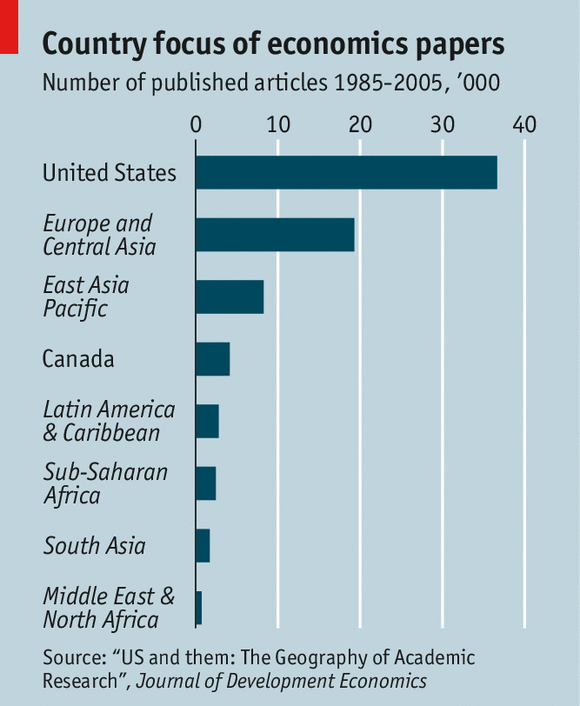
When scientists moan about how little politicians know about science, I usually get annoyed. Such grouching is almost always counterproductive and more often than not betrays how little scientists know about the UK's governance structures, processes, culture and history.
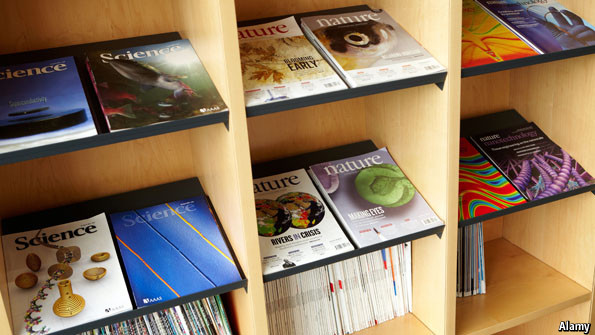
Controversial model points to benefits of more opinionated reviews.

The journal Food and Chemical Toxicology has just retracted a controversial article published in September 2012 claiming a link between genetically modified maize and cancer.

The physicist Richard Feynman liked to gripe about what he called "Alfred Nobel's Other Mistake." The first mistake was the invention of dynamite. The second was creating the Nobel Prizes.
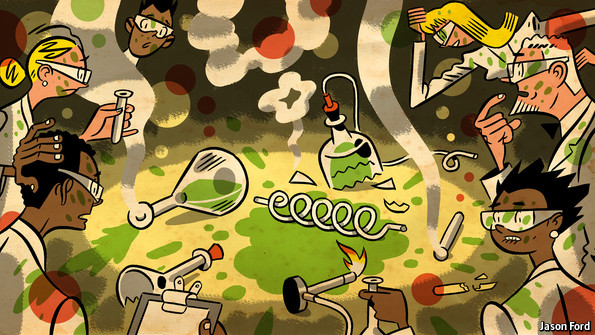
Scientific research has changed the world. Now it needs to change itself.
